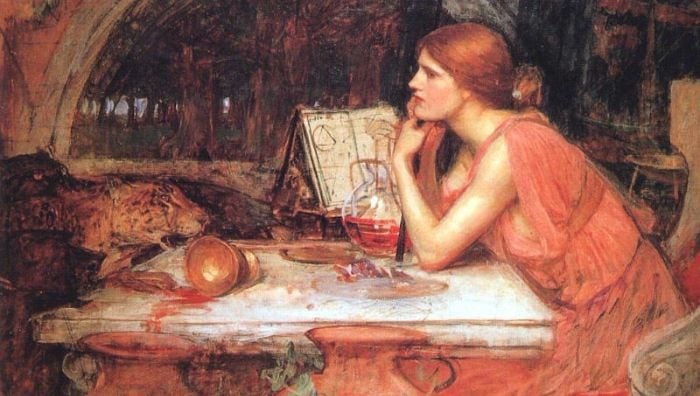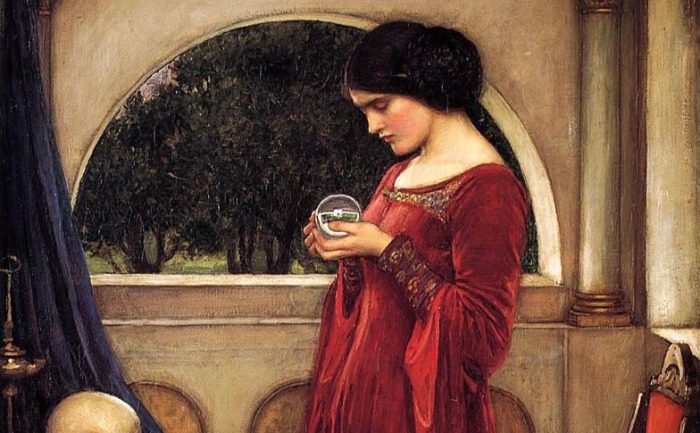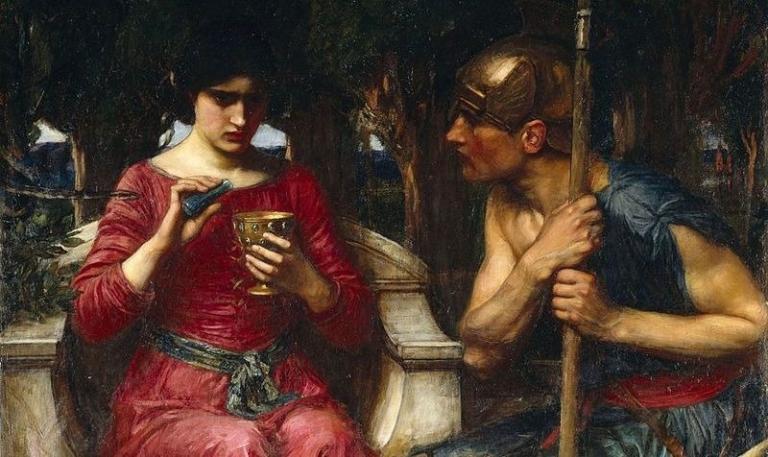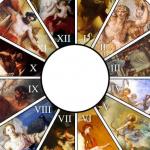This Imbolc will be the 27th anniversary of the holiday on which I first dedicated myself to the path of witchcraft. Maybe that seems like a long time to some people, or maybe it doesn’t seem like very long at all to other people. Either way I find myself reflecting this year on where I am now, how much has changed, and what remains the same. I also find myself thinking a lot about the things I wish I’d know when I was starting out, not because I think knowing would have changed the course of things but because it might have helped make some things easier as I went along.
So, today I thought I’d take a look at the things I wish I’d known back then because maybe they’ll resonate with other people as well, and maybe they’ll help out someone out there who is just starting out and needs to hear them. Some of these may, of course, seem very obvious to you as you read them, but I can remember a time when they weren’t obvious at all to me. I think we forget as we go along what it was like to start out and have this whole new, complicated spirituality opening up around us.

It’s Okay to Make Mistakes – We all make mistakes, but I know when I started out as a new witch I had a very unrealistic expectation of how things would go. I thought rituals would be seamless, spells might not always work but they’d be efficiently cast, and overall I’d have myself together as a witch. In reality my friend and I set a carpet on fire in one of our first rituals, more than once in the beginning I knocked over, spilled, or dropped spell ingredients mid-spell, and it took years for me to learn when to act and when not to act magically. I still make mistakes, even now. Eventually I let go of the idea that I had to do things perfectly to be a witch, but I really wish someone had been around to tell me at the beginning that it’s alright to make mistakes. We learn from our mistakes (I’ve never set another carpet on fire) not only how not to make them again but also how to handle the consequences, and that’s important.
It’s Also Okay to be a ‘Bad’ Witch – I don’t mean bad in a moral sense here but I mean bad, like not perfect. It’s okay to miss acknowledging holidays, or moons, or to forget when an eclipse is. It’s alright to put your health or self-care ahead of casting that spell at the perfect time, in fact at this point I’d personally say it’s better to put your health ahead of that. When I was younger I would look around at the few other witches I knew, or the ones I read about in books, and I’d compare myself to them; they always seemed so much more on the ball than I was, so much witchier and better at it all. As I gained more experience though I started to realize that we can’t measure ourselves against anyone else, only against ourselves. We should try to get better at what we are doing, and to do it well, but we know when we aren’t in a good place, mentally or physically, to be putting energy into magic. We have to trust ourselves. I also realized as time went on that what one person judges as very important could be meaningless to someone else.
And that Kind of ‘Bad’ Witch Too – When I first started out the books I read emphasized the Wiccan Rede in ways that made it seem like a universal law of witchcraft. It isn’t, and I really wish I’d known that sooner. The morality of the Rede is only one possibility in witchcraft and while it works well for some people it isn’t for everyone. As I began to follow a more Reconstructionist methodology I became comfortable with the idea of cursing when necessary and adopted a more situational ethics approach to both life and magic. I moved away from the popular witchcraft books which advocated one interpretation of witchcraft and into a different view, of a different kind of witch, and that’s okay – I just wish I’d known it was okay when I was starting out.

The Gods Aren’t Always Nice – I think the view may be a little different today if you are just beginning as a witch, but when I started in the early 90’s I remember that the books I read seemed to emphasize the kindness of the Gods, as if they were all loving, caring, beings. As a pre-teen this idea appealed to me, but as I started reading mythology from different cultures I saw a disconnect. The gods described in my witchcraft books were given names from mythology but they weren’t described in ways that resembled the gods I was reading about in the actual mythology. I wish I’d known then that while the Gods are awe-inspiring and deserving of our respect and worship, they are not gentle loving divine parents. At least not the ones I have experience with. I’m not speaking for other people’s experience here, but I have certainly seen deities act in decisive and brutal ways when they are angered, which is a big part of why I am so careful not to anger them.
Not Everything Without a Body is Your Friend – I admit this is one I did know myself starting out, having already had some experiences with ghosts and spirits before becoming a witch, but I’m including it here because it still caused me lots of trouble when I was just starting out. When I was young I may have known disembodied beings could be trouble but that doesn’t mean I knew how to handle them – but because I was fairly out as a witch from an early point people would come to me, even when I was in my teens, because they’d gotten into trouble with a spirit. I had my boyfriend’s mother come to me, when I was a teenager, because she and her adult friends had been playing with a ouija board and invited in a spirit which then attached itself to one of the women’s homes and started trying to drive her to suicide. I had to banish it, which isn’t something I particularly wanted to do at that age. So this is my public service announcement – not all beings without bodies are your friends, even if they say they are.

Spiritual Work is Really Hard Work – not all the time, but a lot more of the time than I think I realized it would be. There’s fun moments as well, and joy and laughter, but there’s also a lot more blood, sweat, and tears than I expected. Not everyone needs to become a priestess or lead a group or teach, but even just living as a witch and being good at your craft requires effort and work. And that work is harder than I certainly thought it would be when I was starting out. I think when I was younger I had this idea that it might take effort but it would be like school where you do the homework and progress forward – as I became more experienced I realized that it isn’t like that at all. Real spiritual work is painful and gritty and can take years to make any progress at all, and it often focuses on things you don’t even realize are issues. And however much of that is true for practicing witchcraft is doubly and triply true for being a priestess.
Not All Witches or Pagans Are Good People – when I started out I really did believe that if someone was a witch or pagan then they must somehow be a better person, a good person, because they followed the goddess and the Wiccan Rede. Time and life experience has shown, painfully, that this is not true. Witches and pagans are people, just like any other people, flawed and human and imperfect. We should never trust anyone automatically just because of their religion or spiritual path, and we should always be willing to check someone’s claims. This isn’t a matter of mistrust or paranoia this is simple common sense. And I really wish I’d known it starting out because it might have saved me some serious pain and grief along the way.
There’s a list of seven things I wish I’d known when I was starting out. I’m sure if you ask any five other witches you’d get five different lists – in fact I encourage you to, because I think a lot can be learned from this sort of thing – but this is a look at the things I’ve learned through experience that I wish someone had told me sooner. Although knowing me, maybe I wouldn’t have listened. I guess sometimes we have to learn certain things for ourselves the hard way. I hope some of you reading this can find some value here though, or at least some food for thought.

















